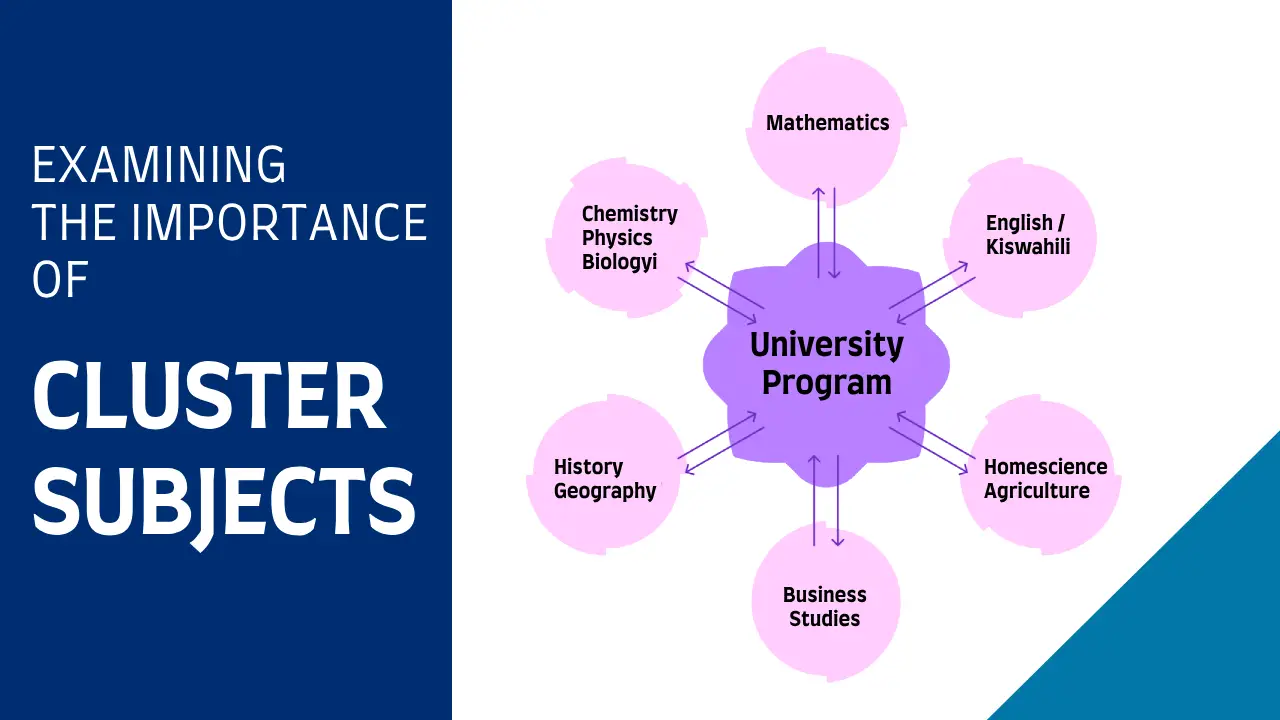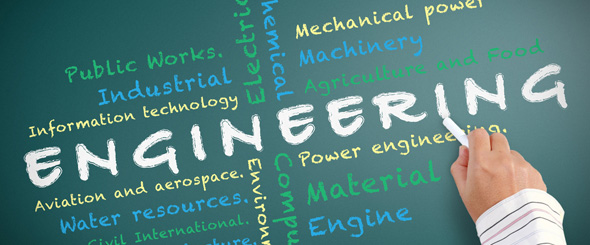Career Paths
Engineering Courses in Kenya: A Guide for 2025 KCSE Graduates
Are you a 2025 KCSE graduate considering a career in engineering but not sure which field to pursue? This detailed guide explores the six core branches of engineering — Mechanical, Civil, Electrical, Chemical, Computer, and Industrial — to help you make an informed decision about your future.

Engineering is one of the most respected and impactful professions worldwide. It plays a vital role in designing, developing, and maintaining the systems and technologies that shape our daily lives — from buildings and machines to energy systems, software, and manufacturing processes. In Kenya, the demand for skilled engineers continues to grow as the country pursues industrialization, infrastructure development, and technological innovation under Vision 2030.
If you have just completed your Kenya Certificate of Secondary Education (KCSE) and are passionate about problem-solving, creativity, and technology, an engineering course may be the perfect choice. However, with so many options available, it can be challenging to choose the right discipline. To help you decide, this article explores the six fundamental branches of engineering, their sub-branches, programs, and the career opportunities each offers.
1. Mechanical Engineering
Mechanical Engineering is one of the oldest and broadest fields of engineering. It focuses on the design, development, testing, and production of mechanical systems — anything that moves or involves motion and energy. This branch combines physics, mathematics, and materials science to create machines and systems that improve efficiency and quality of life.
Programs and Sub-Branches
- Diploma in Mechanical Engineering (offered by KNEC and universities)
- Bachelor of Science in Mechanical Engineering (offered by universities such as JKUAT, University of Nairobi, and Dedan Kimathi University)
Sub-branches include:
- Automotive Engineering – focuses on vehicle design, manufacturing, and maintenance.
- Mechatronic Engineering – combines mechanical and electrical engineering to design intelligent systems like robots and automation equipment.
- Thermal and Energy Engineering – deals with power generation, heating, and cooling systems.
- Manufacturing Engineering – focuses on production processes, machining, and industrial design.
Career Opportunities
Graduates can work in industries such as manufacturing, energy, automotive, robotics, and construction. Possible careers include mechanical engineer, plant technician, maintenance engineer, or project manager. With experience, one can advance into research, design, or entrepreneurship in industrial machinery and renewable energy systems.
2. Civil Engineering
Civil Engineering is the branch of engineering concerned with designing, constructing, and maintaining physical infrastructure. Civil engineers build the foundations of modern society — roads, bridges, buildings, dams, water systems, and airports.
Programs and Sub-Branches
- Diploma in Civil Engineering (examined by KNEC)
- Bachelor of Science in Civil Engineering (offered at universities such as University of Nairobi, Moi University, and Kenyatta University)
Sub-branches include:
- Structural Engineering – focuses on designing safe and stable structures.
- Transportation Engineering – deals with road, railway, and airport infrastructure.
- Water and Environmental Engineering – focuses on water supply, sanitation, and environmental sustainability.
- Geotechnical Engineering – involves studying soil and rock properties for construction projects.
Career Opportunities
Civil engineers are highly sought after in Kenya’s growing infrastructure sector. Graduates can work as structural engineers, site supervisors, water engineers, or project managers in public and private construction firms. There are also opportunities in consulting, urban planning, and environmental protection projects.
3. Electrical Engineering
Electrical Engineering deals with the generation, transmission, and application of electrical energy. It is central to the modern world — from power supply systems to telecommunications and electronic devices.
Programs and Sub-Branches
- Diploma in Electrical and Electronics Engineering (offered by TVET colleges and examined by KNEC or NITA)
- Bachelor of Science in Electrical and Electronic Engineering (offered by universities such as JKUAT, Kenyatta University, and Technical University of Kenya)
Sub-branches include:
- Power Engineering – focuses on generation and transmission of electricity.
- Electronics Engineering – deals with electronic devices, circuits, and control systems.
- Telecommunication Engineering – focuses on communication systems, including mobile and internet networks.
- Mechatronic Engineering – combines electrical and mechanical systems to create smart devices and automation solutions.
Career Opportunities
Electrical engineers can work in the energy, telecommunications, manufacturing, and construction sectors. Common job titles include electrical engineer, systems designer, maintenance technician, and telecommunications engineer. With further study, professionals can specialize in renewable energy, smart grids, and robotics systems — areas of growing importance in Kenya’s future economy.
4. Chemical Engineering
Chemical Engineering is the branch of engineering that transforms raw materials into useful products through chemical, biological, and physical processes. It combines principles from chemistry, physics, and mathematics to design safe, efficient, and sustainable production systems.
Programs and Sub-Branches
- Bachelor of Science in Chemical Engineering (offered by universities such as Moi University and Technical University of Kenya)
- Diploma in Chemical Engineering (offered by select TVET colleges)
Sub-branches include:
- Petroleum and Gas Engineering – focuses on the extraction and processing of oil and natural gas.
- Biochemical Engineering – applies biological and chemical principles in producing pharmaceuticals and biofuels.
- Environmental Engineering – focuses on pollution control, waste management, and sustainable processes.
- Process Engineering – involves designing and managing large-scale manufacturing systems.
Career Opportunities
Chemical engineers work in industries such as petroleum, food processing, pharmaceuticals, water treatment, and manufacturing. Graduates can become process engineers, quality control analysts, production supervisors, or environmental consultants. With growing focus on sustainability, chemical engineers are key players in green energy and environmental conservation efforts.
5. Computer Engineering
Computer Engineering integrates electrical engineering and computer science to design and develop computer hardware, software, and systems. It focuses on creating efficient and secure digital systems that power modern devices and networks.
Programs and Sub-Branches
- Diploma in Computer Engineering (offered by various TVET institutions)
- Bachelor of Science in Computer Engineering (available at universities like JKUAT)
Sub-branches include:
- Software Engineering – focuses on the design and development of applications and systems software.
- Network Engineering – involves designing and managing communication networks.
- Artificial Intelligence and Machine Learning – applies algorithms to develop intelligent systems.
- Cybersecurity Engineering – focuses on protecting data and systems from digital threats.
Career Opportunities
Graduates in Computer Engineering can pursue careers as software developers, network engineers, systems analysts, or cybersecurity specialists. With Kenya’s growing digital economy and government support for ICT development, computer engineers are in high demand across industries such as banking, telecommunications, education, and e-commerce.
6. Industrial Engineering
Industrial Engineering focuses on designing, improving, and managing complex systems involving people, technology, and materials. It aims to increase efficiency, reduce waste, and enhance productivity in organizations.
Programs and Sub-Branches
- Bachelor of Science in Industrial Engineering and Management (offered at institutions like Moi University and Egerton University)
- Diploma in Industrial Engineering (offered by select TVET institutions)
Sub-branches include:
- Operations Research – uses mathematical models to improve decision-making and resource allocation.
- Supply Chain and Logistics Engineering – focuses on optimizing the movement of goods and services.
- Quality Engineering – ensures that processes and products meet high standards.
- Systems Engineering – integrates different engineering disciplines to manage complex projects.
Career Opportunities
Industrial engineers work in manufacturing, logistics, healthcare, finance, and service industries. They can pursue careers as operations managers, production planners, quality assurance engineers, or supply chain analysts. As Kenya’s industries continue to grow, industrial engineers are vital in driving efficiency and innovation across both public and private sectors.
Conclusion: Choosing the Right Engineering Path
Each branch of engineering offers exciting opportunities to innovate, solve problems, and contribute to Kenya’s economic development. When choosing an engineering discipline, consider your interests, strengths, and long-term goals:
- If you enjoy **machines and design**, consider Mechanical Engineering.
- If you’re passionate about **building infrastructure**, explore Civil Engineering.
- If you’re curious about **electricity and electronics**, go for Electrical Engineering.
- If you love **chemistry and materials**, choose Chemical Engineering.
- If you’re drawn to **technology and innovation**, pursue Computer Engineering.
- If you want to **improve efficiency and systems**, select Industrial Engineering.
Ultimately, engineering is about using science and creativity to make the world a better place. Whichever path you choose, your contribution will help shape Kenya’s future — from sustainable infrastructure and manufacturing to digital innovation and clean energy. The journey begins with curiosity, determination, and the desire to solve problems that matter.
Start your journey today — explore the engineering programs offered by accredited Kenyan institutions and take the first step toward an impactful, rewarding career.











